Sharing Diagnosis with Family & Friends
Who, Why & How
Learn about Sharing Diagnosis with Family and Friends Today!
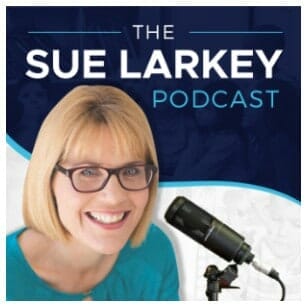
**************************************
Join me for an upcoming Workshop:
Can't make these Workshop dates? Join me for a self-paced on-demand course:
Sue Larkey On-Demand Workshops
**************************************
Discussed in this Episode:
✅ What worked and didn’t work
✅ Who needs to know about the diagnosis
✅ Why people need to know
✅ How much should I share?
✅ Top Tips for Disclosing Diagnosis
✅ Why you shouldn’t hide your child’s diagnosis from them
✅ FREE Book by Anna Tullemans, ‘Disclosing Diagnosis’ with first 100 orders of books she has Authored (Value $25)
Share Diagnosis with Family and Friends Today!
Talking to family and friends about a diagnosis can be a bit daunting, I am hoping this podcast with Anna Tullemans will prepare you with information and understanding to make the task easier. Begin Sharing Diagnosis with Family and Friends Today!
Top Tips from The Interview with Anna
1. Before passing on information, cross out anything that is not relevant to your child and explain the points that are relevant to them and how people can adjust, accommodate and support.
2. Once family and friends have understood the needs of your child they will begin to change their approach.
3. It is important to constantly educate your family around your child as they grow and change. Someone who is 6 with ASD can look very different at 12 or 16. It is about constantly re-educating.
4. Books about diagnosis allow them to read and absorb in their own time. Use them to then have conversations. Picture books and lived experience stories were most useful for Daniel, but also family and friends. Leaving them on coffee tables was a great way to start conversations
Important question to ask yourself before sharing diagnosis
“What are the changes you want to see when you disclose the diagnosis to your family and friends?”
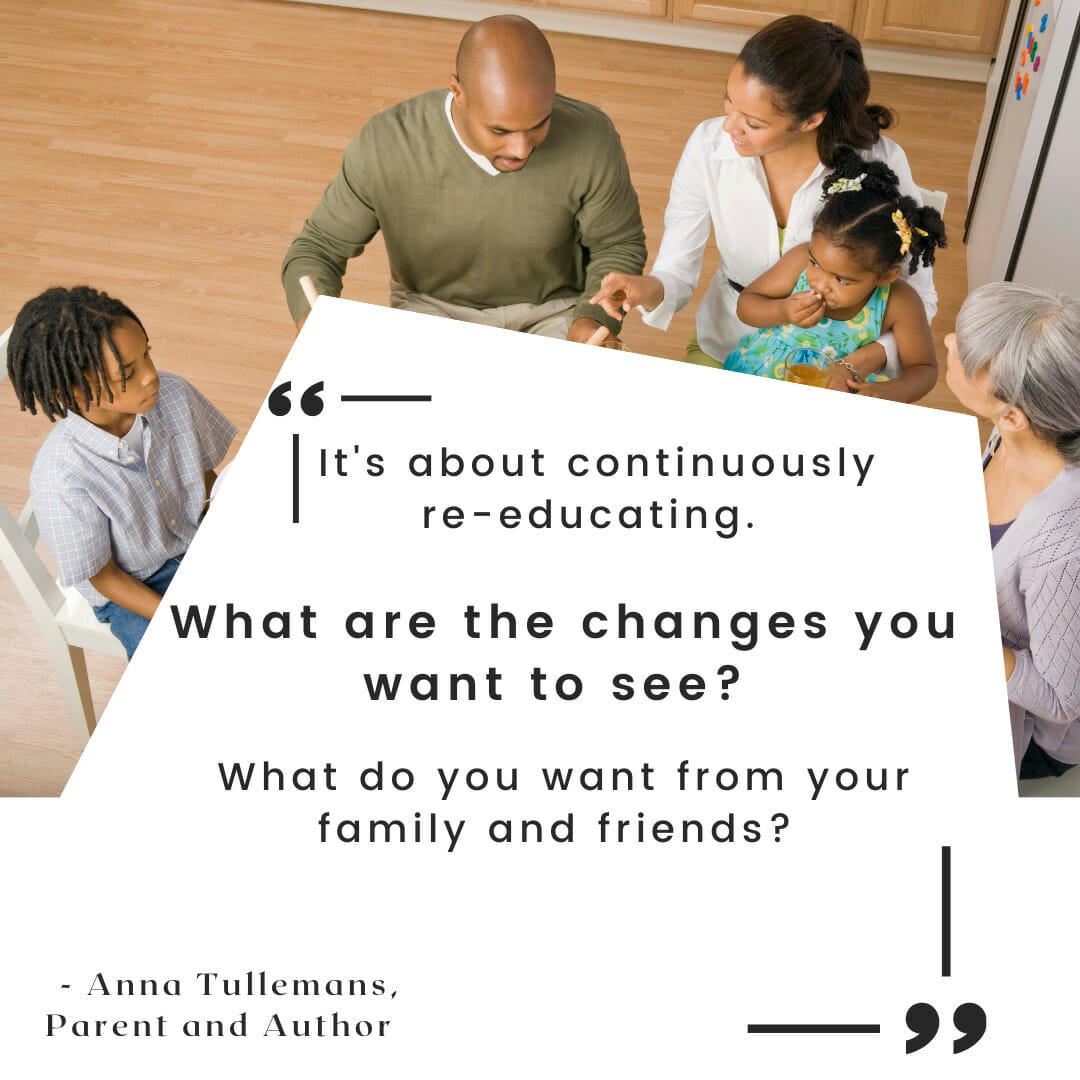
First 100 people who buys an Anna Tullemans’ or Sue Larkey & Anna Tullemans’ book get, ‘Disclosing the Diagnosis,’ for free
Books by Anna Tullemans and Sue Larkey:
Check out my Podcasts where I Interviewed Anna:
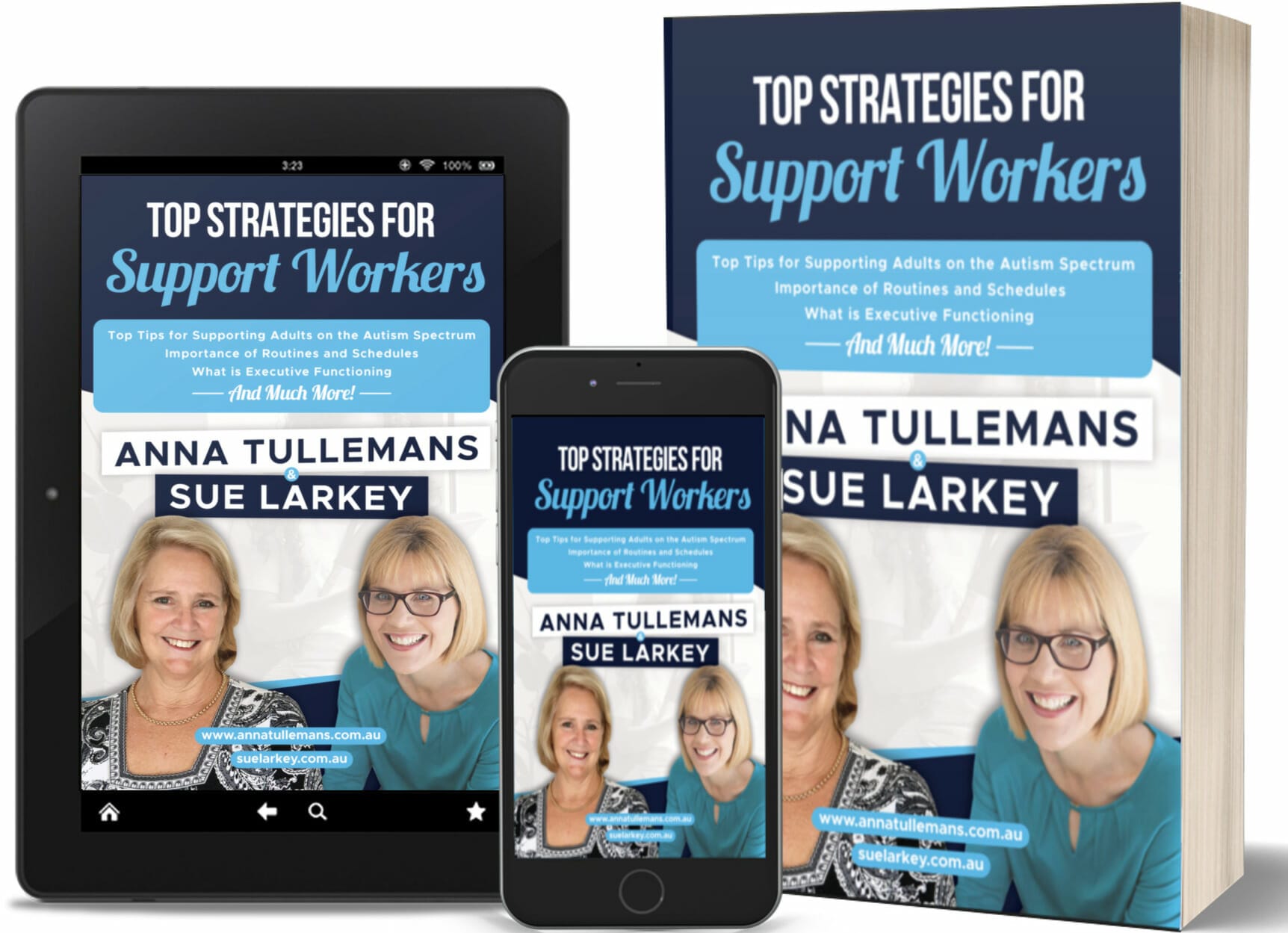
Episode 133: Strategies for Support Workers – Sue Larkey & Anna Tullemans
✅ Why we have written this new book for Support Workers, Participants, and their Families/Carers
❤️ The changes we have seen in Disabilities Services and Autism Spectrum. From Institutions to Individualised Programmes – From Autism being considered part of Schizophrenia to having separate diagnosis in DSM 3 in the 1980s to today where we use the term Autism Spectrum Disorders.
⭐️ Why Switching Tasks can be Challenging and what you can do Support Participants
📌 Adaptive Skills – Why they are important for Capacity Building and Independence
⭐️ Importance of Self Advocacy and using the “This is Me” Proforma in the new book
✅ How Building Independence & Participant Participation underpins our New Book
UNDERSTANDING AuDHD: Teaching & Supporting Students with Autism and ADHD Co-occurrence
✅ 2 Hours, 8 Lessons
✅ 6 Weeks to Complete
✅ Certificate of Completion
✅ Lesson Transcripts
 2 Hours
2 Hours

$149
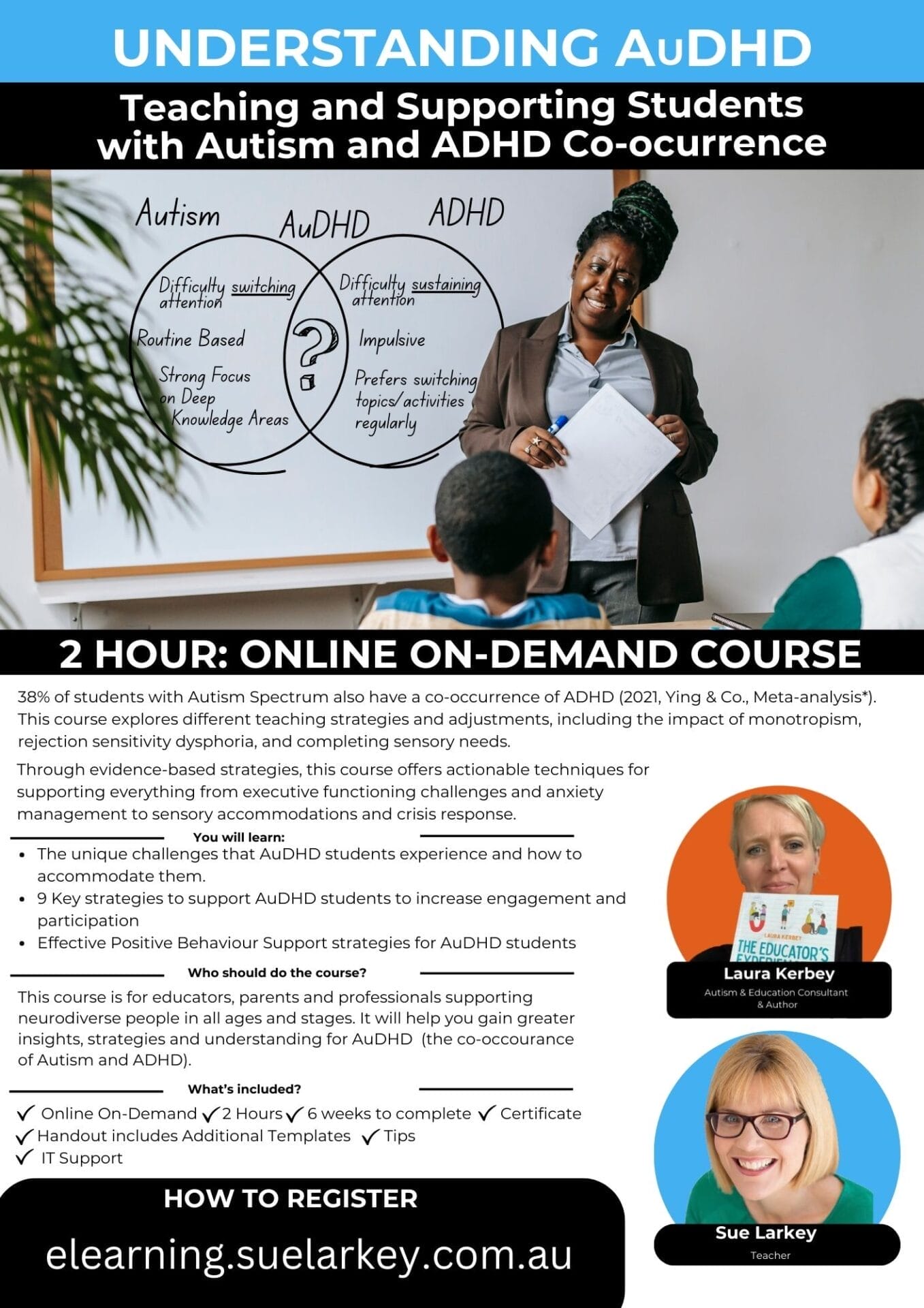
 2 Hours
2 Hours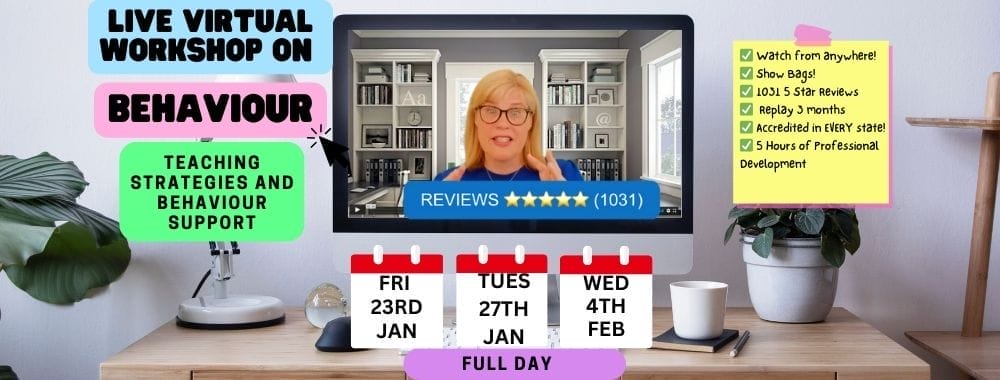

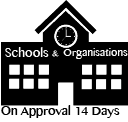
 Sorry we no longer ship items outside Australia. Please consider the digital versions of Sue’s Books –
Sorry we no longer ship items outside Australia. Please consider the digital versions of Sue’s Books – 